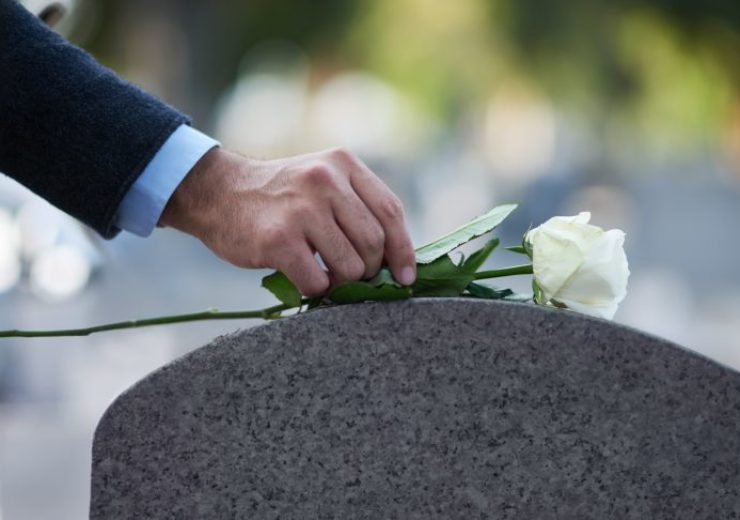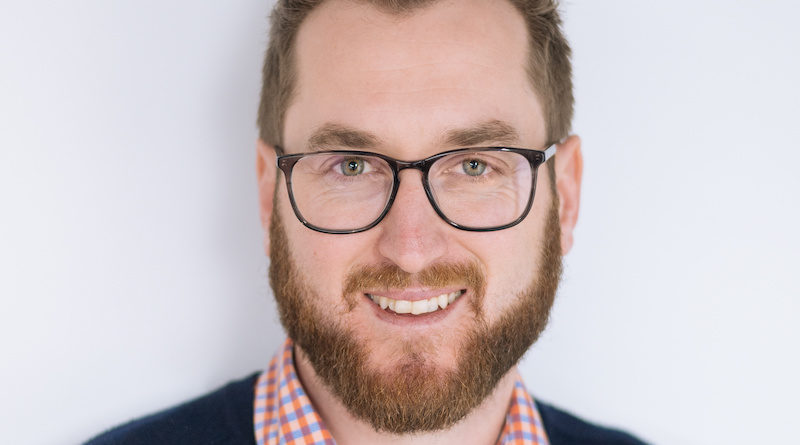As well as helping users with bereavement, Guardian Angel ultimately hopes to break the taboo around the subject of death

One of Guardian Angel's main goals is to break the social stigma surrounding death and bereavement (Credit: People Images/iStock)
The bereavement process is “the problem everyone has, but no one’s trying to solve” because death remains such a taboo subject within healthcare, according to death-tech firm Guardian Angel. This is a situation the start-up is hoping to change with its online support hub for people who have experienced a loss or are planning ahead.
Guardian Angel is a free online service that offers services to help recently bereaved people stay privately connected to their loved ones and seek help with anything from planning a funeral to coping with grief.
The start-up’s website features dozens of articles with advice on topics surrounding death, and can be used to talk to other people who have been through the bereavement process.
Samuel Grice founded the Manchester-based company in 2017 after his mother died in a car accident the previous year.
Speaking at the 2019 GIANT Health conference in London, Grice said: “I never thought I’d be involved in the death-tech industry until I lost my mother, but when I went through this process as a bereaved son, I noticed that the industry is very fragmented.
“It’s very hard to get information and it’s very hard to get help, and because no one talks about it – which is the taboo – there’s been basically no innovation.
“Breaking a taboo is a very easy thing to say and a very hard thing to do, but I think technology, and in particular Guardian Angel can help do this.”
Breaking the social taboo around death and the bereavement process – Guardian Angel’s vision
Guardian Angel believes the social taboo surrounding death comes from our suppressed fear of dying.
Grice said: “If you look at when people talk about death, they often touch wood — it’s that ‘touch wood’ moment.
“That’s because a lot of people think, subconsciously, that we’re going to live forever, and we don’t want to discuss the topic.
“The reality is, it’s going to happen to all of us. And so as a company we’re trying to break down this taboo attached to the subject.
“But our vision is a lot larger than that — our goal is to get families engaged with the subject of dealing with death.
“What we’re aiming to do is aggregate the worldwide bereavement community, and by doing this we will lean on companies to build products that solve these issues, and solve these wider societal problems.”
Why death-tech is needed in the bereavement process
Guardian Angel sees death as a trigger point — when you lose a loved one you begin to think about your own mortality, and that can make things in your own life seem a lot more overwhelming.
Grice believes there are several key issues stemming from this, which Guardian Angel has attempted to solve.
He said: “Everyday things like walking the dog and picking kids up from school can suddenly become a lot more chaotic. You’ve got a lot of people around you but there’s no one there to share that burden.

“On top of that you have to plan a funeral — the average person gets exposed to a death once every five years, and people only organise about three funerals in their lifetime.
“So this isn’t something we’re experts at, no one really knows what to do, and you’re leaning on professionals who are so used to it that no one’s really challenging what they say.
“There’s also communication, which comes from all angles nowadays. When I lost my mother I had over 100 messages on Facebook and via email, and you feel like you have to respond to all these messages.
“Communication comes from another angle too — if you need to make an announcement like not wanting people to wear suits to a funeral, you have to either go individually or share that on public forums like Facebook, which most people feel uncomfortable about.”
Grice said that while “the world of technology advances around us”, there has not been enough innovation in the death-tech industry to help people manage these issues.
He added: “If you want to plan for the end, so to speak, you have to go through an array of professional services and people, and ask them for advice.
“There’s no central place you can go and get that advice online, and that’s what we’re in the process of building.”
How does Guardian Angel help with the bereavement process?
Guardian Angel’s online platform allows its users to stay connected with friends and relatives of the person they have lost without using more public social channels like Facebook.
Once its users sign-up they are able to create a family wall — this can be used to tell people what’s happening with a quick update, and also provides a place for them to share condolence messages, photos, memories and support.
They are also able to set up a family to-do list, letting people who want to help the bereaved in any way possible know exactly what they can do.
Guardian Angel offers coordinated support as well, meaning when well-wishers send food, flowers and other gifts, the support hub can coordinate this so everything doesn’t arrive at once.
The online platform privately and securely lets its users share funeral details, and other important updates they’d rather not post publicly on social media, with friends and relatives.
While the support hub keeps friends and families connected privately during and after the bereavement process, it can also link users to other bereaved people if they want to talk to someone who has been through a similar experience.
Grice said: “We’ve got a lot of bereavement networks out there, and it’s a matter of connecting those hubs together so that people can lean on each other for advice.
“When you’re experiencing death for the first time, who better to ask for advice than people who have also been through it?”
Another part of Guardian Angel’s support hub is the range of articles featured on its website that are written by people who have also been through the bereavement process.
These articles cover a range of topics surrounding death, offering advice on writing a will, dealing with grief, and planning and paying for a funeral.
End-of-life planning with Guardian Angel
As well as offering all of these services directly through its online support hub, Guardian Angel allows users to write a will, and offers advice on this process.
Every will can be checked over by its in-house expert, and users can pay £10 per year to be able to make as many changes and updates as they need.
Grice believes end-of-life planning can be broken down into three types of services that help families to deal with the effects of death — both before and after.
The first of these is the financial aspect, referring to things such as life insurance and reverse mortgages, which allow homeowners access to the equity they have built up in their homes, deferring payment of the loan until they die.
Second is the legal side of things, which includes lasting power of attorney and a last will and testament.
Third is the social aspect, which incorporates deciding what happens to your body when you die.
Grice said: “When people know they need to start talking about death and dying, they’ll need products to help them get prepared.
“The elephant in the room is that people don’t really know if they’re prepared or not.
“So when we started asking people ‘are you prepared for death?’, most people responded with ‘I don’t know’ or maybe ‘I know I’m not but I don’t know what to do’.”
Guardian Angel attempts to help people understand how prepared they are, and show them actionable steps they can take to become more so.
Grice said: “Then it’s a matter of guiding them into products that they could need. For example, if you need a will or you haven’t granted power of attorney, you’ll be able to get that easily online through our planning tool.
“It’s also a matter of driving users through the three stages of decision-making: Awareness, consideration and decision.
So, what a lot of professional services like lawyers will do is try to force users to the decision stage straightaway when people probably don’t even know if they need a lasting power of attorney or advanced directive, and that’s where the planning tool comes in.”
